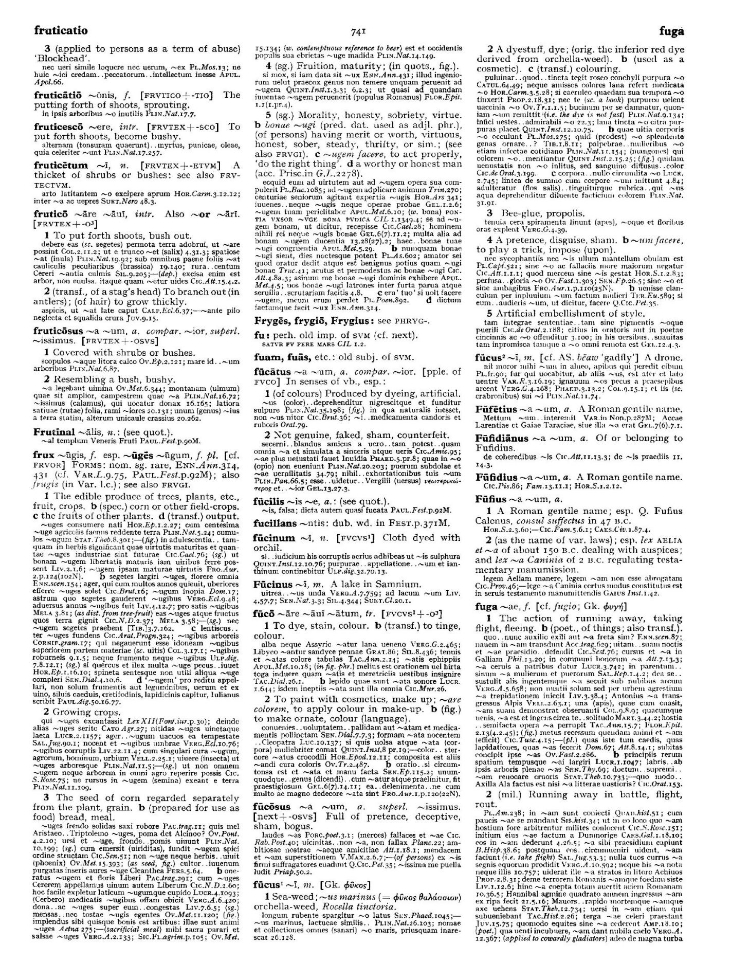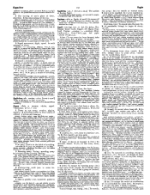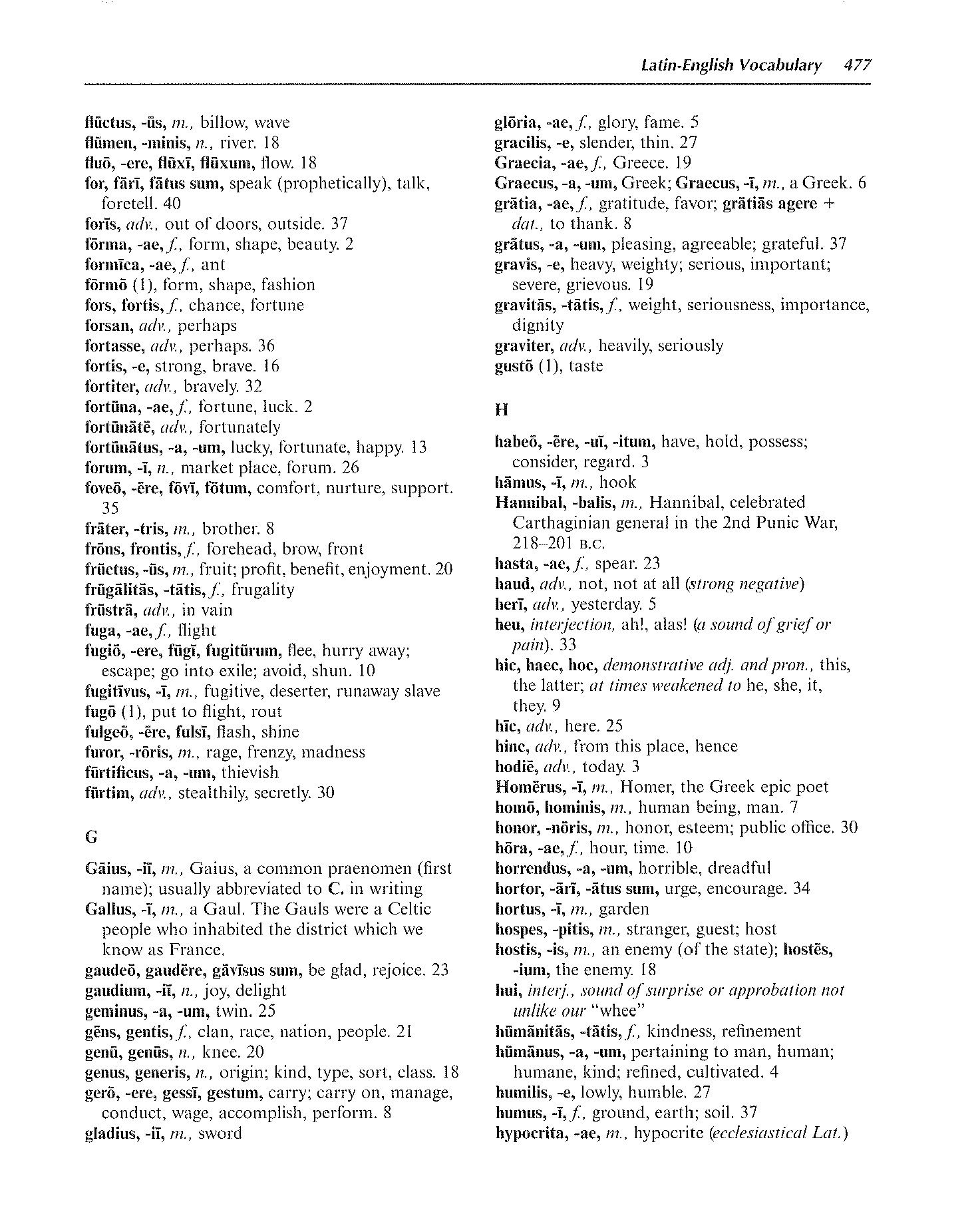
page_listing.tpl
page_subListingDetails.tpl
sub_listingDetails_style1.tpl
sub_listingDetails.title.tpl
fuga flight
fuga is a Latin Noun that primarily means flight.
Definitions for fuga
Wheelock's Latin
Noun
- 1
flight
Oxford Latin Dictionary
Noun
- 1
The action of running away, taking flight, fleeing. (b) (poet., of things; also transf.).
- 2
(mil.) Running away in battle, flight, rout.
- 3
The leaving of one's place of duty, desertion, (b) the absconding (of slaves).
Sentences with fuga
Latin to English
Nomen amicitae sic, quatenus expedit, haeret; calculus in tabula mobile ducit opus. Cum fortuna manet, vultum servatis, amici; cum cecidit, turpi vertitis ora fuga.Compare The name of friendship endures so long as there is profit in it; the counter of the boards plays a changeable game. While my luck holds you give me smiles. my friend; when it is out, you turn your faces away in shameful flight.
Sed, ut hic omitto, quid foedus, quis perturbatus hic ab urbs discessus, sive potius turpis fuga?Compare But, to pass over these things, what was more unseemly or more disorderly than this departure from the city, or rather than this most disgraceful flight?
Exegi monumentum aere perennius regalique situ pyramidum altius, quod non imber edax, non Aquilo impotens possit diruere aut innumerabilis annorum series et fuga temporum. Non omnis moriar multaque pars mei vitabit Libitinam.Compare My work is done, the memorial more enduring than brass and loftier than the kingly building of the pyramids-something that neither the corroding rain or wild rage of Aquilo can destroy, nor the numberless succession of years and flight of ages. I shall not die: a large part of me will escape the Funeral-queen.
Magnus pars fuga inde primum coepi.Compare The flight of a large number then first began.
Declension table for fuga
Cactus2000
| Singular | Plural | |
| Nom. | fuga | fugae |
| Gen. | fugae / -āī | fugārum |
| Dat. | fugae | fugīs |
| Acc. | fugam | fugās |
| Abl. | fugā | fugīs |
Data sources
Notes
- Definitions
- Frederick M. Wheelock, Wheelock's Latin, 6th ed., rev. Richard A. LaFleur (New York, NY: HarperCollins Publishers, 2005): 477.
- P. G. W. Glare, Oxford Latin Dictionary, Vols. 1-8 (Oxford: Clarendon Press, 1982): 741.
- Word frequencies
- Christopher Francese, "Latin Core Vocabulary," Dickinson College Commentaries, last modified 2014, http://dcc.dickinson.edu.
- Paul B. Diederich, The Frequency of Latin Words and Their Endings, PhD diss., (Columbia University, 1939).
- Louis Delatte, Suzanne Govaerts, Joseph Denooz, and Etienne Evrard, Dictionnaire fréquentiel et index inverse de la langue latine [Frequency Dictionary and Inverse Index of the Latin Language] (Liège, Belgium: Laboratoire d'analyse statistique des langues anciennes de l'Université de Liège [L.A.S.L.A.], 1981): 121.
Bibliography
Allen, Joseph H. Allen and Greenough's New Latin Grammar for Schools and Colleges: Founded on Comparative Grammar. Edited by James B. Greenough, George L. Kittredge, Albert A. Howard, and Benjamin L. D'Ooge. Boston, MA: Ginn & Company, 1903.
Crystal, David. A Dictionary of Linguistics and Phonetics. 6th ed. Oxford, UK: Blackwell Publishing, 2008.
Delatte, Louis, Suzanne Govaerts, Joseph Denooz, and Etienne Evrard. Dictionnaire fréquentiel et index inverse de la langue latine [Frequency Dictionary and Inverse Index of the Latin Language]. Liège, Belgium: Laboratoire d'analyse statistique des langues anciennes de l'Université de Liège (L.A.S.L.A.), 1981.
Diederich, Paul B. The Frequency of Latin Words and Their Endings. PhD diss., Columbia University, 1939.
Francese, Christopher. "Latin Core Vocabulary." Dickinson College Commentaries. Last modified 2014. http://dcc.dickinson.edu/latin-vocabulary-list.
Gildersleeve, Basil L., and Gonzales Lodge. Gildersleeve's Latin Grammar: Third Edition, Revised, and Enlarged. 3rd ed. London, England: Macmillan and Co., 1903.
Glare, Peter G.W. Oxford Latin Dictionary. Vols. 1-8. Oxford, England: Clarendon Press, 1982.
Krüger, Bernd. "Latin Conjugation Tables." Cactus2000. Accessed May 5, 2023. https://latin.cactus2000.de/index.en.php.
Pierson, Nick. "Sound of Text." Accessed October 26, 2019. https://soundoftext.com.
Wheelock, Frederick M. Wheelock's Latin. 6th ed. Revised by Richard A. LaFleur. New York, NY: HarperCollins Publishers, 2005.
Wiktionary Contributors. "Victionarium." Wikimedia Foundation, Inc. Updated March 18, 2019. https://la.wiktionary.org/wiki/Victionarium:Pagina_prima.
Citation
Chicago (17th ed.)
Allo Contributors. "fuga, fugae (n.) - Latin Word Definition." Allo Latin Dictionary. Last modified . Accessed February 20, 2026. http://ancientlanguages.org/latin/dictionary/fuga-fugae.
Entry created on . Last updated on .








